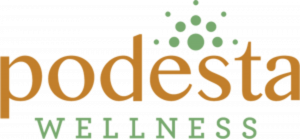The Role of Family in Addiction Recovery and the Impact of Al-Anon Support
Family involvement in addiction recovery is essential, as it can provide a support system that fosters accountability, compassion, and encouragement. ”
NEW ORLEANS, LA, UNITED STATES, October 9, 2024 /EINPresswire.com/ -- Addiction recovery is a challenging journey that often extends beyond the individual struggling with substance use disorders to encompass their entire family and support network. The influence of familial relationships can play a crucial role in both the development and treatment of addiction. Recognizing and leveraging this role can be transformative in the recovery process. Dr. Arwen Podesta, a board-certified psychiatrist and addiction specialist and owner of Podesta Wellness in New Orleans, Louisiana, provides insight into how family involvement can aid recovery and the vital role Al-Anon plays as a supportive organization for the families of those struggling with addiction.— Dr. Arwen Podesta
Family dynamics are deeply intertwined with the progression of addiction and the process of recovery. Substance use disorders often create a cycle of dysfunction within family units, characterized by stress, emotional pain, enabling behaviors, and strained relationships. This cyclical pattern can perpetuate the addiction and hinder an individual's ability to achieve and maintain sobriety. However, the family can also be an anchor of support and a source of strength in breaking the cycle and fostering a healthier path to recovery.
The Impact of Family on Addiction Recovery
In recovery, family members can serve as both positive and negative influences. Supportive, well-informed families can enhance an individual's motivation to seek treatment, provide emotional support, and create a stable environment conducive to recovery. Conversely, families who are unaware of the complexities of addiction, or who engage in enabling behaviors, may inadvertently hinder the progress of recovery or contribute to relapse.
Understanding addiction as a disease rather than a moral failing or behavioral choice is essential in reframing the way families approach recovery. Education and open communication are key in breaking down stigmas, addressing misunderstandings, and promoting a supportive environment. Family therapy and involvement in recovery programs can significantly improve outcomes, as it encourages families to understand addiction, learn healthier communication strategies, and develop coping mechanisms for their own emotional responses to the addiction.
Dr. Arwen Podesta explains, "Family involvement in addiction recovery is essential, as it can provide a support system that fosters accountability, compassion, and encouragement. However, the process requires families to understand the nature of addiction and learn how to provide support without enabling unhealthy behaviors. This is where structured support groups like Al-Anon become vital, offering families the tools and community they need to support their loved ones effectively."
The Role of Al-Anon in Family Support
Al-Anon, a support organization for families and friends of individuals struggling with alcohol addiction, serves as an important resource for those affected by their loved one’s substance use. Al-Anon follows a 12-step program that emphasizes the importance of self-care, detachment with love, and emotional well-being for family members. By focusing on these principles, Al-Anon provides an environment where families can find support from others experiencing similar challenges, learn how to better cope with the impacts of addiction, and develop healthier ways to interact with their loved one.
One of the primary goals of Al-Anon is to help family members and friends recognize that they are not alone in their struggles. It fosters a sense of community among those who understand the unique pressures and emotional burdens that come with having a loved one dealing with addiction. Meetings allow individuals to share their experiences, listen to others' stories, and find strength in the shared journey toward healthier family dynamics.
In addition to emotional support, Al-Anon offers practical guidance. The organization educates families on how to set healthy boundaries, avoid enabling behaviors, and support their loved one’s recovery without compromising their own mental and emotional well-being. This approach is critical in shifting the focus from trying to "fix" the person struggling with addiction to taking care of one’s own needs and well-being, which in turn can positively influence the overall recovery process.
The Family Disease Concept
Addiction is often described as a "family disease," as it does not affect only the individual using substances but also deeply impacts those around them. Family members may experience a range of emotions, including guilt, shame, anger, fear, and confusion. These emotional responses can lead to dysfunctional patterns within the family, such as codependency, denial, and enabling.
Al-Anon's emphasis on self-care and detachment with love encourages family members to focus on their own healing and to recognize that their loved one's recovery journey is ultimately their own responsibility. This does not mean withdrawing support or care; rather, it involves acknowledging that family members cannot control or cure the addiction, and their well-being does not have to be contingent on their loved one’s behavior or recovery status.
Benefits of Family Involvement in Recovery
Research shows that family involvement in the recovery process can significantly improve treatment outcomes. Family therapy and support groups like Al-Anon can reduce stress within the family, enhance communication skills, and promote healthier behaviors that are supportive of long-term recovery. For the individual in recovery, having a supportive family environment can enhance treatment compliance, reduce the risk of relapse, and improve the overall quality of life.
Family members who participate in programs like Al-Anon also benefit from the support they receive, gaining emotional strength and better understanding of addiction. This support empowers them to make positive changes in their relationships, learn how to support their loved one effectively, and take care of their own mental health. It also helps them navigate the emotional challenges of supporting someone in recovery, offering a space to process their experiences and emotions without judgment.
Conclusion
The role of family in addiction recovery is multifaceted, offering both opportunities for support and challenges that need to be addressed. Families play an essential role in the recovery process, but they need education, support, and tools to be effective in their efforts. Organizations like Al-Anon provide a valuable resource for families, offering guidance, community, and strategies for self-care and healthier family dynamics.
The goal of recovery is not just the cessation of substance use, but also the restoration of well-being for the individual and their family. By understanding addiction as a family disease and actively engaging in support programs like Al-Anon, families can contribute to a more effective and compassionate recovery process, fostering healing for all involved.
Morgan Thomas
Rhino Digital, LLC
+1 504-875-5036
email us here
Visit us on social media:
Facebook
Legal Disclaimer:
EIN Presswire provides this news content "as is" without warranty of any kind. We do not accept any responsibility or liability for the accuracy, content, images, videos, licenses, completeness, legality, or reliability of the information contained in this article. If you have any complaints or copyright issues related to this article, kindly contact the author above.


